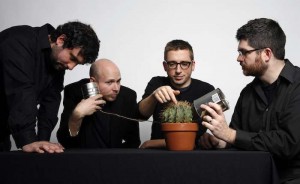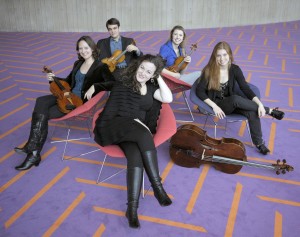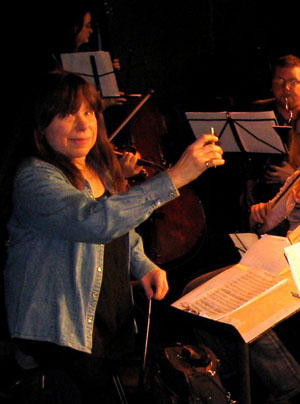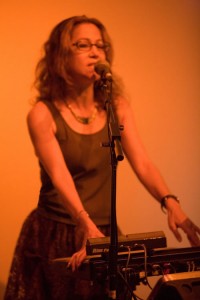
So Percussion recently released remixes of tracks from Amid the Noise, their recording of music by Jason Treuting. You can grab it for free via their Bandcamp site (embed below).
Treuting recently released sheet music for Amid the Noise, which can be purchased at Good Child Music.

This year, a great number of artists and ensembles are celebrating John Cage’s centenary – even Jessye Norman and Meredith Monk are getting in on the act as part of Michael Tilson Thomas’s revival of the American Mavericks series with the San Francisco Symphony. While it will be fascinating to see that some of these “out of the box” Cage performances will be happening, it’s also nice to hear that groups like So Percussion, who have a long track record performing Cage’s music, are celebrating the centenary in style. On 3/26, they are taking part in the American Mavericks series at Carnegie Hall (details here).
The concert will be the culmination of a tour by the group featuring Cage’s Third Construction as the centerpiece of Cage-themed program entitled We Are All Going in Different Directions.

There’s an equally imaginative recorded component So’s feting of the maestro of indeterminacy. On 3/27, Cantaloupe will release So Percussion’s “John Cage Bootleg Series.” The release includes a blank LP (the better with which to perform 4’33”!), a CD sampler, and a card with download codes that will enable listeners to obtain all of the group’s Cage bootlegs online. And the audio artifact lover in me delights in the handsome homemade feel of its handsome packaging. Top to bottom, Cage’s aesthetic is well manifested in So Percussion’s activities this Spring!
We Are All Going in Different Directions: So Percussion Celebrates Cage
Feb 28: Vanderbilt University, Nashville, Tennessee (Cage’s Third Construction)
March 2: The Royal Conservatory, University of Toronto, Toronto, Canada
March 6 + 7: The McCullough Theatre, University of Texas, Austin
March 10: Lawrence University in Appleton, Wisconsin (Cage’s Third Construction)
March 26: Zankel Hall, Carnegie Hall, NYC
Program
John Cage: Credo in US (1942)
Sō Percussion / Matmos: Needles (w/ Matmos) (2010)
John Cage: Imaginary Landscape #1 (1939)
John Cage: Quartet for Percussion, from She is Asleep (1943)
Cenk Ergün: Use (w/ Cenk Ergün & Beth Meyers) (2009)
Dan Deacon: “Bottles” from Ghostbuster Cook: The Origin of the Riddler (2011)
John Cage: 18’12”, a simultaneous performance of Cage works
-Inlets (Improvisation II) (1977)
–0’00” (4’33” No.2) (1962)
–Duet for Cymbal (1960)
–45’ for a speaker (1954)
Jason Trueting: 24 x 24 (w/ special guests) (2011)
John Cage: Third Construction (1941)







 Washington, D.C. readers may have noticed that the new music scene in the District has been exploding lately. This week brings another significant event when New York’s
Washington, D.C. readers may have noticed that the new music scene in the District has been exploding lately. This week brings another significant event when New York’s 



